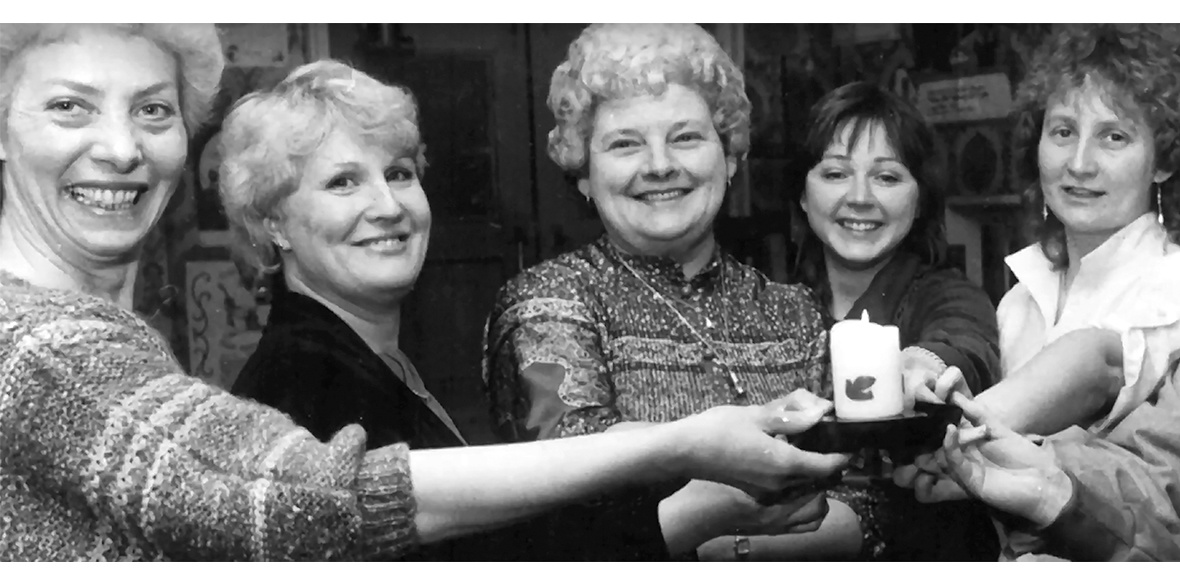This is the last article you can read this month
You can read more article this month
You can read more articles this month
Sorry your limit is up for this month
Reset on:
Please help support the Morning Star by subscribing here
THE national miners’ strike of 1984/85 was probably, apart from the 1924 General Strike, the most traumatic and iconic working-class struggle of the 20th century.
Although a number of films have been made about that strike, the role women played in it has not been given the coverage it deserves.
Women in the past have always been there supporting men in their struggles, for the first time during this strike they set up their own parallel organisation, Women Against Pit Closures (WAPC) and what became known as “the fight for jobs.”
The wives, sisters and mothers of the miners waged their own struggle alongside but parallel to that of the men. They were no longer satisfied with playing second fiddle — they took to the streets, joined in the demonstrations, stood on the picket lines, raised money and set up food distribution centres.
In the 1990s, they would even occupy pits due for closure. Not only was their contribution vital in keeping the strike going, but it transformed the lives of so many who took part.
Emily Ingram’s recently completed documentary, Until the Fires Go Out: Doncaster’s Women and the Fight for Jobs, charts that phenomenon, focusing on the City of Doncaster in the Yorkshire coalfield.
Made with film material that was readily available, Emily reveals the passion and conviction of these women. There is minimal narration, and it is the voices of three women — Aggie, Brenda and Margaret — which tell the story. Each of them played a different role in this chapter of Doncaster’s mining heritage.
I ask Emily what motivated her to make this film, almost 40 years after the strike itself and 30 years after the disbandment of the pit camps.
“After completing my MA dissertation on Working Class Women in Documentary Film, I was looking for a project that would build on that research,” she tells me. “After moving to Doncaster, I was struck by how much of the WAPC story remains to be told... There had been considerable media interest around the women of Barnsley, where Anne Scargill was based, but little has been written about the women of Doncaster. This video is part of Heritage Doncaster’s Changing the Record project and aims to redress that imbalance.
“Making the film was not the final aim. I had already decided to interview several of the women from mining communities and it is the stories of three of these that are related in the video; the images came later.
“Getting hold of the visual material was a question of beg, borrow or steal! The film took me over a year to make during lockdown and it was completed in December last year.
“It was made on a shoestring but with a grant from Doncaster Heritage and generous help in terms of footage from film-maker Richard Hines (the brother of Barry Hines of Kes fame), Barnsley archive and the BBC. Doncaster Heritage also funded training sessions.”
What impact did the miners’ strike have on the subsequent lives of these women, I ask her.
‘Well, there has been much simplistic description of it transforming women’s lives from housewives into activists, but it is more complex than that.” Emily explains. “A number of women who became activists were already feisty and active participants in their communities but, of course, involvement in the strike did introduce a radically new perspective into their lives.
“They were having new experiences. Some of them were speaking publicly, addressing large gatherings, for the first time in their lives, and travelling to London, debating with politicians and trade union leaders.”
And have such experiences really changed their lives, I wonder.
“Well, they are still struggling,” Emily says. “The outcome has been bitter-sweet. While their perspectives have been broadened and their experiences of political activism were enriching and have certainly impacted on their family, social and cultural lives, the communities around them have been destroyed and the economic struggle of daily survival continues.”
Until the Fires Go Out: Doncaster’s Women and the Fight for Jobs (21 min) can be watched free of charge on Heritage Doncaster’s YouTube channel: https://www.youtube.com/watch?v=7CxBkiLtZ2o.












